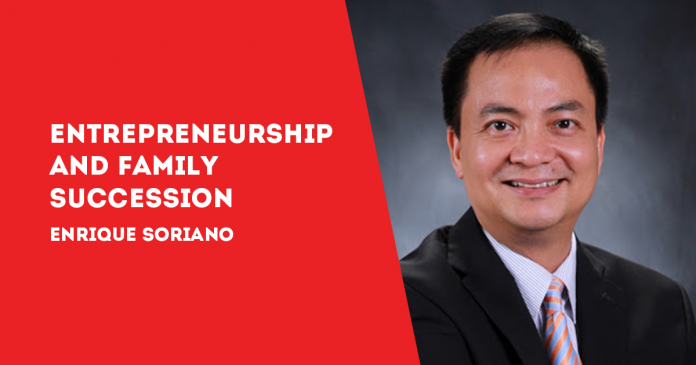
BY PROF. ENRIQUE SORIANO
THIS JAPANESE proverb underscores a profound and strategic approach to succession planning that has been instrumental in the longevity and stability of Japanese family businesses. Traditionally, male offspring are the preferred heirs in family-run enterprises. But what happens when there is no male line to continue the legacy?
In the second installment of our series on family business succession, we explore the Mukoyoshi practice — a uniquely Japanese approach with universal lessons. This tradition allows families to adopt adult males, often sons-in-law, to carry forward the family business. It’s a strategy that ensures the selection of a capable and committed leader, regardless of bloodline, to sustain the enterprise across generations.
The Origins of Mukoyoshi: A 1,300-Year Legacy
The Mukoyoshi practice has roots that stretch back over a millennium. In AD 717, the god of Mount Haku visited Buddhist monk Taicho Daishi in a dream, instructing him to find a hot spring in the village of Awazu, in today’s Ishikawa prefecture. Daishi discovered the spring and instructed his pupil, Garyo Hoshi, to build a guest house there. Garyo Hoshi, in turn, adopted a son, Zengoro, to continue the legacy, establishing what is now the world’s oldest family business—Hoshi Ryokan. For nearly 1,300 years, this hotel has been passed down through 46 generations, often through the adoption of capable heirs when necessary.
This tradition of adopting successors has been a pragmatic solution to a common challenge: ensuring the survival and success of the family business in the absence of a biological male heir. As Mariko Fujiwara, a sociologist at the Hakuhodo Institute of Life and Living, explains, “If you did not have a capable son to succeed, you would try to find a more capable man to marry one of your daughters. It was a very pragmatic decision for the family business to survive.”
Japan, with one of the world’s highest adoption rates—over 80,000 annually, predominantly adult men in their 20s and 30s—has seen an entire industry evolve around providing suitable candidates for family businesses in need of an heir.
Mukoyoshi in Practice: Strategic Succession Beyond Tradition
The Mukoyoshi practice is more than just a cultural tradition; it is a strategic business decision that allows families to handpick successors from a broader pool of candidates. This flexibility has been a significant advantage in maintaining strong leadership within family businesses, ensuring that the values and mission of the business are preserved across generations.
Toraya Confectionery: Founded in the early 16th century, Toraya is one of Japan’s oldest and most prestigious confectionery companies. When no suitable male heir was available, the Kurokawa family adopted a son-in-law who demonstrated both business acumen and a deep understanding of the company’s values. This strategic decision allowed Toraya to maintain its leadership in the luxury confectionery market, renowned for its traditional Japanese sweets (wagashi).
Suntory Holdings: Founded in 1899 by Shinjiro Torii, Suntory is one of Japan’s most iconic beverage companies. Over the years, the company has been led by several generations of the Torii family, with the occasional adoption of a son-in-law to ensure strong leadership. This strategy has allowed Suntory to expand globally while maintaining its commitment to quality and innovation.
Lessons from Mukoyoshi for Global Family Businesses
The Mukoyoshi practice, while uniquely Japanese, offers valuable insights for family businesses worldwide. It demonstrates the importance of flexibility and strategic planning in succession, ensuring that leadership is not solely determined by birthright but by capability and alignment with the family’s values and vision.
For family businesses facing similar challenges, the Mukoyoshi model offers a blueprint for success—one where the continuity and prosperity of the business are safeguarded by choosing the most qualified individuals to lead, whether they are born into the family or adopted into it./PN







